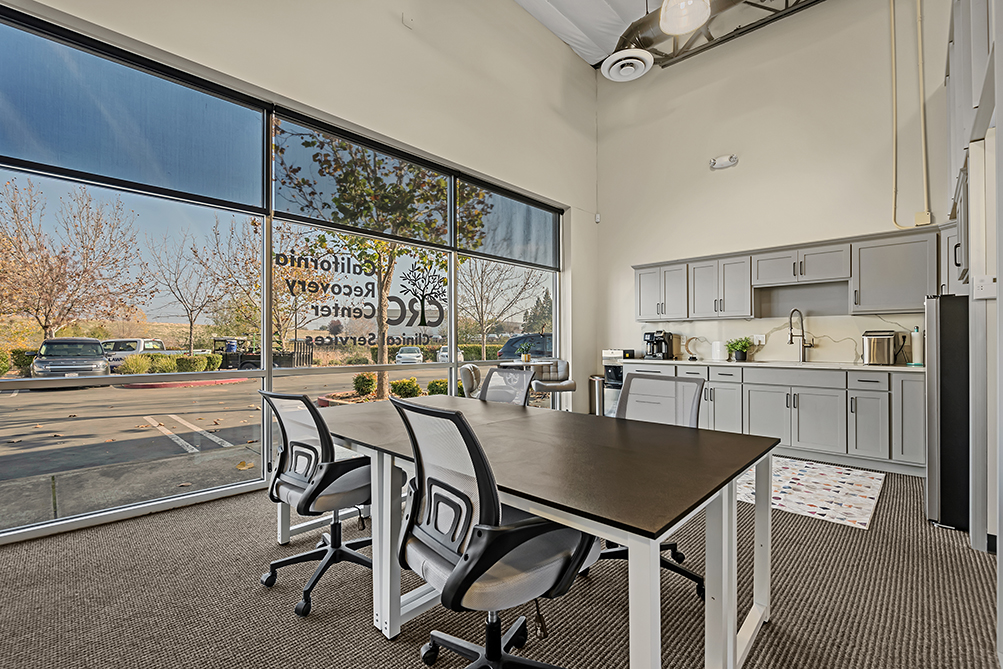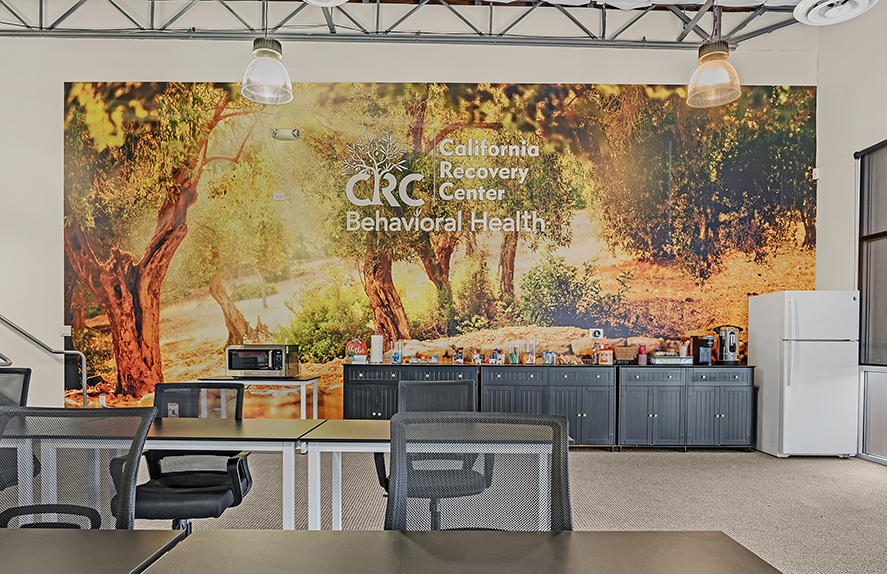Understanding Mental Health and Addiction
Addiction and mental health disorders often go hand in hand. Studies show that nearly 50% of individuals with a substance use disorder (SUD) also have a co-occurring mental health condition such as depression, anxiety, or PTSD. This is known as dual diagnosis, and treating both conditions simultaneously is crucial for long-term sobriety.
Without proper mental health treatment centers, individuals struggling with dual diagnosis may find themselves trapped in a cycle of self-medication, worsening symptoms, and repeated relapses. The relationship between addiction and mental health is complex, and failing to address both aspects of the issue can significantly reduce the effectiveness of recovery efforts.
What Is Integrated or Dual-Diagnosis Treatment?
Integrated treatment is a comprehensive approach that addresses both mental health disorders and addiction together, rather than separately. Unlike traditional treatment models that tackle addiction and mental health issues in isolation, integrated treatment recognizes that these conditions are interconnected. A mental health treatment center specializing in dual diagnosis care offers therapies and interventions that target both issues at the same time, increasing the chances of a full recovery.
By focusing on the underlying mental health conditions that contribute to substance abuse, integrated treatment provides a more sustainable and effective path to sobriety. This approach ensures that individuals receive tailored care that meets their unique needs rather than a one-size-fits-all solution that fails to address their specific challenges.
The Importance of Treating Mental Health in Addiction Recovery
Ignoring mental health disorders during addiction recovery can significantly increase the risk of relapse. Here’s why mental health treatment is essential:
Mental Health Disorders Can Fuel Addiction
Many individuals use drugs or alcohol as a way to self-medicate their anxiety, depression, or trauma. Without addressing the underlying mental health issue, the cycle of addiction is likely to continue. When individuals do not receive treatment for their mental health conditions, they may rely on substances to cope with negative emotions, stress, or painful memories.
Over time, this pattern reinforces substance dependence and makes it more difficult to break free from addiction. By integrating mental health care into addiction treatment, individuals can develop healthier coping mechanisms that do not involve substance use.
Substance Abuse Can Worsen Mental Health Symptoms
Chronic substance abuse can cause or exacerbate mental health conditions. Alcohol and drug use can lead to chemical imbalances in the brain, making symptoms of depression or anxiety more severe. For instance, excessive alcohol consumption is known to interfere with neurotransmitters that regulate mood, leading to heightened symptoms of depression.
Similarly, stimulants such as cocaine or methamphetamine can trigger episodes of anxiety or paranoia, further worsening mental health conditions. Without proper treatment, the cycle of substance abuse and mental health deterioration can continue indefinitely, making recovery even more challenging.
Higher Risk of Relapse Without Mental Health Care
A person recovering from addiction who does not receive mental health support is more likely to relapse due to unaddressed emotional pain, stress, or trauma triggers. Many individuals struggling with addiction have experienced significant life traumas, relationship difficulties, or deep-seated emotional wounds that contribute to their substance use.
If these issues remain unresolved, they can act as powerful triggers that drive individuals back to substance use, even after completing a rehabilitation program. Addressing mental health through therapy, counseling, and support groups can help individuals healthily process their emotions, reducing the likelihood of relapse and supporting long-term recovery.
How Integrated Treatment Works
Dual Diagnosis Assessment
A professional mental health treatment center conducts an in-depth evaluation to diagnose both substance use and mental health disorders, ensuring personalized treatment. This assessment typically involves a combination of clinical interviews, psychological evaluations, and medical history reviews to gain a comprehensive understanding of the individual’s condition. Identifying both addiction and mental health issues early in the treatment process allows for the development of a more effective and customized recovery plan.
Medication-Assisted Treatment (MAT)
For some individuals, medications may be necessary to stabilize mood disorders or manage withdrawal symptoms. Integrated programs use MAT carefully under medical supervision. These medications can help regulate brain chemistry, reduce cravings, and ease withdrawal symptoms, making the recovery process more manageable. However, MAT is most effective when combined with therapy and counseling, ensuring that individuals receive the emotional and psychological support needed to address the root causes of their addiction.
Behavioral Therapy
Evidence-based therapies such as Cognitive Behavioral Therapy (CBT), Dialectical Behavior Therapy (DBT), and trauma-informed care help individuals develop healthier coping mechanisms. These therapeutic approaches teach individuals how to identify and change negative thought patterns, build emotional resilience, and develop effective stress management techniques.
Behavioral therapy plays a crucial role in addiction recovery by helping individuals reframe their mindset, build self-awareness, and create healthier habits that support long-term sobriety.
Peer Support and Group Therapy
Group therapy fosters a sense of community, reduces isolation, and promotes shared healing experiences among people with similar struggles. Many individuals in recovery feel alone in their experiences, which can contribute to feelings of hopelessness or discouragement.
By participating in group therapy, individuals can connect with others who understand their challenges, share their stories, and receive encouragement from peers who are also on the path to recovery. Peer support groups, such as Alcoholics Anonymous (AA) or Narcotics Anonymous (NA), provide ongoing support and accountability beyond the initial treatment phase.
Holistic Therapies
Many mental health treatment centers incorporate holistic approaches like yoga, meditation, art therapy, and mindfulness practices to support overall well-being. These alternative therapies help individuals develop relaxation techniques, improve emotional regulation, and find creative outlets for self-expression. Holistic treatments address the mind-body connection, promoting overall health and resilience in recovery.
Engaging in activities such as meditation or mindfulness can also help reduce stress, anxiety, and cravings, creating a more balanced and fulfilling recovery journey.
Aftercare and Relapse Prevention
Sustained recovery depends on long-term support. Integrated programs include aftercare plans such as ongoing therapy, sober living options, and support groups to help individuals maintain their sobriety. Aftercare programs provide continued guidance and reinforcement of the skills learned during treatment, ensuring that individuals have access to the resources and support needed to navigate the challenges of life after rehab.
A strong addiction aftercare plan can significantly reduce the risk of relapse and help individuals transition smoothly into a sober lifestyle.
Why Choose a Dual Diagnosis?
A specialized mental health treatment center is better equipped to provide dual diagnosis care than a standard drug rehab facility. These centers offer:
- Licensed mental health professionals trained to treat co-occurring disorders
- Customized treatment plans addressing both addiction and mental health
- 24/7 medical support for individuals in crisis
- A safe, supportive environment conducive to healing
The Statistics Behind Dual Diagnosis and Recovery
- Over 9.2 million U.S. adults experience a co-occurring mental health and substance use disorder (National Institute on Drug Abuse).
- Integrated treatment reduces relapse rates by up to 25% compared with traditional addiction treatment alone.
- People who receive mental health care alongside addiction treatment are 40% more likely to maintain long-term sobriety.
Recovery is not just about quitting drugs or alcohol—it’s about addressing the root causes of addiction. By choosing a mental health treatment center that offers integrated treatment, individuals struggling with addiction can achieve lasting recovery and improved mental well-being. Integrated treatment provides a comprehensive, holistic approach that empowers individuals to regain control of their lives, heal from past trauma, and build a healthier future.
Contact a Mental Health Treatment Center
If you or a loved one is battling addiction and mental health issues, don’t wait. Seek help from a trusted mental health treatment center today and take the first step toward a healthier, sober life.





